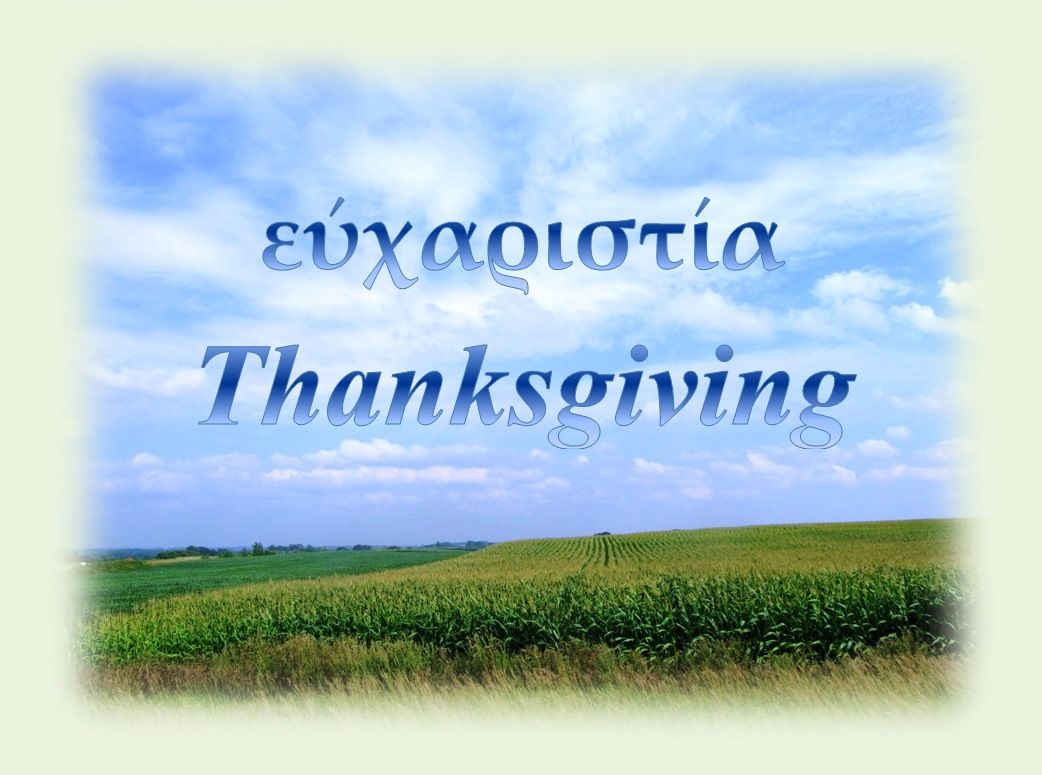Dear Brothers and Sisters in Christ, I am posting the following article with accompanying permission and link to the orginal for reading and insight as to the power of prayer for spiritual revival within the Christian Church worldwide. When you read this article, please note that its beginnings were founded upon prayer. ...
Mary Katherine MayEarly Twentieth Century Revivals
LINK TO ORIGINAL ARTICLE
1904 - Loughor, Wales (Evan Roberts)
1906 - Azusa Street, Los Angeles (William Seymour)
1907 - January - Pyong-Yang, Korea
1914 - Belgian Congo in Africa (C. T. Studd)
1921 - Monday 7 March - Lowestroft, England (Douglas Brown)
1936 - Sunday 29 June - Gahini, Rwanda (East African Revival)
1904
Revival historian Edwin Orr observed: 'The early twentieth century Evangelical Awakening was a worldwide movement. It did not begin with the phenomenal Welsh Revival of 190405. Rather its sources were in the springs of little prayer meetings which seemed to arise spontaneously all over the world, combining into streams of expectation which became a river of blessing in which the Welsh Revival became the greatest cataract. ...
'The Welsh Revival was the farthestreaching of the movements of the general Awakening, for it affected the whole of the Evangelical cause in India, Korea and China, renewed revival in Japan and South Africa, and sent a wave of awakening over Africa, Latin America, and the South Seas.
'The story of the Welsh Revival is astounding. Begun with prayer meetings of less than a score of intercessors, when it burst its bounds the churches of Wales were crowded for more than two years. A hundred thousand outsiders were converted and added to the churches, the vast majority remaining true to the end. Drunkenness was immediately cut in half, and many taverns went bankrupt.
Crime was so diminished that judges were presented with white gloves signifying that there were no cases of murder, assault, rape or robbery or the like to consider. The police became "unemployed" in many districts. Stoppages occurred in coal mines, not due to unpleasantness between management and workers, but because so many foulmouthed miners became converted and stopped using foul language that the horses which hauled the coal trucks in the mines could no longer understand what was being said to them, and transportation ground to a halt' (Orr 1975c:192193).
Touches of revival had stirred New Quay, Cardiganshire, on the west coast of Wales where Joseph Jenkins was minister of a church in which he led teams of revived young people in conducting testimony meetings throughout the area.
Seth Joshua then held meetings there, then at Newcastle Emlyn and at Blaenannerch, at which students from the Methodist Academy attended including Evan Roberts.
At Blanannerch on Thursday 29 September, Seth Joshua closed the 7 am meeting before breakfast crying out in Welsh, 'Lord ... bend us'. Evan Roberts remembered, 'It was the Spirit that put the emphasis for me on "Bend us". "That is what you need" said the Spirit to me. And as I went out I prayed, O Lord, bend me.'
During the 9 am meeting, Evan Roberts eventually prayed aloud after others had prayed. He knelt with his arms over the seat in front, bathed in perspiration as he agonised. He recalled, 'I cried out, "Bend me! Bend me! Bend us! Oh! Oh! Oh! Oh!" (Evans 1969:70).
The revelation, 'God commendeth his love' (Romans 5:18) overwhelmed Evan Roberts. Soon a motto of the revival became 'Bend the church and save the world'. Evan Roberts in his twenties was one of God's agents in that national revival.
Monday 31 October - Loughor, Wales (Evan Roberts)
Soon after the impact of the Spirit on him at Seth Joshua's meetings, he took leave to return home to challenge his friends, especially the young people.
Back home in his small village of Loughor on the south coast of Wales, Evan Roberts spoke after the usual Monday night meeting to 17 people. The Holy Spirit moved on them all. He then spoke every night to increasing crowds. By the weekend the church was packed and invitations came for him to speak in other churches and chapels. He usually took a small team with him to pray, witness and sing.
November 1904 saw the fires of revival spread throughout Wales. Newspapers began describing the crowded meetings. By January 1905 the papers had reported 70,000 converted in less than three months.
The Spirit of God convicted people as Evan Roberts insisted:
1. You must put away any unconfessed sin.
2. You must put away any doubtful habit.
3. You must obey the Spirit promptly.
4. You must confess Christ publicly.<
He believed that a baptism in the Spirit was the essence of revival and that the primary condition of revival is that individuals should experience such a baptism in the Spirit.
1906
Easter Saturday 14 April - Azusa Street, Los Angeles (William Seymour)
William Seymour, the Negro leader of The Apostolic Faith Mission located at 312 Azusa Street in Los Angeles on Easter Saturday, 14 April 1906 began there with about 100 attending including blacks and whites. It grew out of a cottage prayer meeting at Bonnie Brae Street where the weight of the swelling crowds has broken the front verandah, so they had to move.
Not only was the racial mixture unusual, but newspaper reports, usually critical of these noisy Pentecostal meetings, drew both Christians and unbelievers, poor and rich, to investigate.
'At Azusa, services were long, and on the whole they were spontaneous. In its early days music was a cappella, although one or two instruments were included at times. There were songs, testimonies given by visitors or read from those who wrote in, prayer, altar calls for salvation or sanctification or for baptism in the Holy Spirit. And there was preaching. Sermons were generally not prepared in advance but were typically spontaneous. W. J. Seymour was clearly in charge, but much freedom was given to visiting preachers. There was also prayer for the sick. Many shouted. Others were "slain in the Spirit" or "fell under the power."
There were periods of extended silence and of singing in tongues. No offerings were collected, but there was a receptacle near the door for gifts. ...
'Growth was quick and substantial. Most sources indicate the presence of about 300-350 worshippers inside the forty-by-sixtyfoot whitewashed woodframe structure, with others mingling outside... At times it may have been double that. ...
'Thus the significance of Azusa was centrifugal as those who were touched by it took their experiences elsewhere and touched the lives of others. Coupled with the theological threads of personal salvation, holiness, divine healing, baptism in the Spirit with power for ministry, and an anticipation of the imminent return of Jesus Christ, ample motivation was provided to assure the revival a longterm impact' (Burgess & McGee 1988:3136).
The exploding pentecostal movement around the world usually traces its origins to Azusa Street, from which fire spread across the globe. For example, John G. Lake had visited the mission at Azusa Street. In 1908 he pioneered pentecostal missions in South Africa where, after five years he had established 500 black and 125 white congregations.
1907
January - Pyong-Yang, Korea
Revival in Korea broke in the nation in 1907. Presbyterian missionaries, hearing of revival in Wales, and of a similar revival among Welsh Presbyterian work in Assam, prayed earnestly for the same in Korea. 1500 representatives gathered for ten days at the annual New Year Bible study course in which a spirit of prayer broke out. The meetings carried on day after day, with confessions of sins, weeping and trembling. The leaders allowed everyone to pray aloud simultaneously as so many were wanting to pray, and that became a characteristic of Korean prayer meetings.
'The day before the course ended, the evening meeting seemed full of the presence of God, many broke down confessing their sins, and the whole congregation wept, confessed, prayed and praised at the same time. According to those present, what might appear to be chaos was actually a beautiful expression of the work of God's Spirit' (Davies 1992:189).
Observers were astounded. The delegates of the New Year gathering returned to their churches taking with them this spirit of prayer which strongly impacted the churches of the nation with revival. Everywhere conviction of sin, confession and restitution were common.
By March 2,000 were converted, and 30,000 by the middle of 1907.
Brutal persecution at the hands of the Japanese and then the Russian and Chinese communists saw thousands killed, but still the church grew in fervent prayer.
Prior to the Russian invasion thousands of North Koreans gathered every morning at 5 am. Sometimes 10,000 were gathered in one place for prayer each morning.
Early morning daily prayer meetings became common, as did nights of prayer especially on Friday nights, and this emphasis on prayer has continued as a feature of church life in Korea. Over a million gather every morning around 5 am for prayer in the churches. Prayer and fasting is normal. Churches have over 100 prayer retreats in the hills called Prayer Mountains to which thousands go to pray, often with fasting. Healings and supernatural manifestations continue.
Now the city of Seoul alone has 6,000 churches, many with huge numbers. Koreans have sent over 10,000 missionaries into other Asian countries.
1914
Belgian Congo, Africa (C. T. Studd)
Africa has seen many powerful revivals, such as the Belgian Congo outpouring with C T Studd in 1914. 'The whole place was charged as if with an electric current. Men were falling, jumping, laughing, crying, singing, confessing and some shaking terribly,' he reported. 'As I led in prayer the Spirit came down in mighty power sweeping the congregation. My whole body trembled with the power.
We saw a marvellous sight, people literally filled and drunk with the Spirit' (W.E.C. 1954:1215).
Accounts like that are typical of the continuing moves of God's Spirit in Africa this century. Early this century an estimated 10% of the population was Christian. The Christian population has reached 45-50% of Africa south of the Sahara. By the end of this century the number of African Christians is expected to be 400 million, half the population.
Local revivals are a characteristic of the worldwide growth of the church this century.
1921
Monday 7 March - Lowestoft, England (Douglas Brown)
Douglas Brown, a Baptist minister in South London, saw conversions in his church every Sunday until he began he began itinerant evangelism in 1921. Within eighteen months he then addressed over 1700 meetings, and saw revival in his evangelistic ministry. The Lord had convicted him about leaving his pastorate for mission work. Although reluctant, he finally surrendered.
'It was in February 1921, after four months of struggle that there came the crisis. Oh, how patient God is! On the Saturday night I wrote out my resignation to my church, and it was marked with my own tears. ...
'Then something happened. I found myself in the loving embrace of Christ for ever and ever; and all power and joy and blessedness rolled in like a deluge. How did it come? I cannot tell you. Perhaps I may when I get to heaven. All explanations are there, but the experience is here. That was two o'clock in the morning. God had waited four months for a man like me; and I said, "Lord Jesus, I know what you want; You want me to go into mission work. I love Thee more than I dislike that." I did not hear any rustling of angels' wings. I did not see any sudden light' (Griffin 1992:17-18).
Hugh Ferguson, the Baptist minister at London Road Baptist Church in Lowestoft on the East Anglia coast had invited Douglas Brown to preach at a mission there from Monday 7th to Friday 11th March. The missioner arrived by train, ill. However, he spoke Monday night and at meetings on Tuesday morning, afternoon and night. The power of the Holy Spirit moved among the people from the beginning.
On Wednesday night 'inquirers' packed the adjacent schoolroom for counselling and prayer. Sixty to seventy young people were converted that night, along with older people. Each night more packed the 'inquiry room' after the service. So the mission was extended indefinitely. Douglas Brown returned to his church for the weekend and continued with the mission the next Monday. By the end of March the meetings were moved from the 700 seating Baptist Church and other nearby churches to the 1100 seating capacity of St John's Anglican Church.
March saw the beginning of revival in the area. Although Douglas Brown was the main speaker in many places, ministers of most denominations found they too were evangelising. Revival meetings multiplied in the fishing centre of Yarmouth as
well in Ipswich, Norwich, Cambridge and elsewhere. Scottish fishermen working out ofYarmouth in the winter were strongly impacted, and took revival fire to Scottish fishing towns and villages in the summer. Jock Troup, a Scottish evangelist, has visited East Anglia during the revival and ministered powerfully in Scotland.
At the same time, the spirit of God moved strongly in Ireland, especially in Ulster in 1921 through the work of W. P. (William Patteson) Nicholson a fiery Irish evangelist. This was at the time when Northern Ireland received parliamentary autonomy accompanied by and tension and bloodshed. Edwin Orr was converted then, although not through W. P. Nicholson. Orr wrote:
'Nicholson's missions were the evangelistic focus of the movement: 12,409 people were counselled in the inquiry rooms; many churches gained additions, some a hundred, some double; ... prayer meetings, Bible classes and missionary meetings all increased in strength. ... Ministerial candidates doubled' (Griffin 1992:87).
In Great Britain the Welsh Revival of 1904-5 impacted the nation. Though not as widespread or as intense, the revivals of 1921-2 touched thousands following the devastation of World War I. Revival flamed again in 1948-9 after World War II, especially in the Scottish Hebrides.
1936Sunday 29 June - Gahini, Rwanda (East African Revival)
Sunday seemed normal at the mission station built on the gentle slopes of a hill at Gahini in north-east Rwanda. Pupils from the day schools and the Evangelists' Training School attended the service along with local people gathered in the whitewashed, mud brick and corrugated iron roofed church. A ward service was also held in the similarly built 30-bed hospital for patients and visiting families and friends. A hundred pupils aged up to late teenagers in the girls boarding school hostel met that evening for their hymns and prayer.
About 9.30 pm the silence erupted into frightening shrieks and pandemonium in the girls' hostel. A few girls who had been intensely seeking to know God better seemed embroiled in demonic attacks stirred up in others. Some furniture was smashed in the turmoil. Mission staff ran to intervene, dragging girls outside to separate and calm them. 'Slowly they calmed down. Even as they did so, however, the sound of shouting and singing could be heard from different parts of the hill. And it went on all night!
'At 3.30 am on Monday morning, the noise started again in the girls' school ... Girls were shaking and crying uncontrollably and some were very frightened. ... 'What could have caused such a disturbance? The teachers in the school explained it simply. Four school-girls had been "in dead earnest about getting right with God". While they were praying quietly some non-Christian girls came in. They too were seeking, but not for God; they were seeking contact with their ancestral spirits. The atmosphere changed. ... Of one thing there was no doubt: the pandemonium created was of the devil. It was certainly not of God' (Osborn 1991:17-18).
Similar strange eruptions occurred in the hospital, boys' school, Evangelists' Training School and among people visiting the mission station, but without the destruction of property nor the satanic atmosphere encountered that first night.
'In the days that followed people in many different circumstances would suddenly begin to shiver, leading them at first to believe that they had a fever of some sort. Then a terrifying sense of their sin would overtake them and a fear of facing a holy God. The existence of unforgiven sin became unbearable... [and] it was not enough to repent of a sin unless that repentance was evidenced by total rejection and removal of everything associated with that sin. The blazing light of God's holiness required nothing less. Then the joy and peace of forgiveness and liberation from the guilt and power of sin became almost overwhelming and expressed itself in wild singing and jubilation' (Osborn 1991:18-19).
The famous East African revival began in Rwanda in June 1936 and rapidly spread to the neighbouring countries of Burundi, Uganda and the Congo (now Zaire), then further around. The Holy Spirit moved upon mission schools, spread to churches and to whole communities, producing deep repentance and changed lives. Anglican Archdeacon Arthur Pitts wrote in September, 'I have been to all the stations where this Revival is going on, and they all have the same story to tell. The fire was alight in all of them before the middle of June, but during the last week in June, it burst into a wild flame which, like the African grass fire before the wind, cannot be put out' (Osborn 1991:21).
That East African revival was sustained for forty to fifty years and helped to establish a new zeal for enthusiastic holiness in African Christianity. It confronted demonic strongholds, and began to prepare churches to cope with the horrors of massacres and warfare which erupted in later years.
(c) Geoff Waugh, Fire Fell: Revival Visitations. Brisbane: Renewal.
PO Box 629, Strathpine, Qld. 4077, Australia.
E-mail: geoff@renewal.dialix.oz.au
Internet: http://www.pastornet.net.au/renewal
Reproduction is permitted as long as the copyright remains intact with the text.




